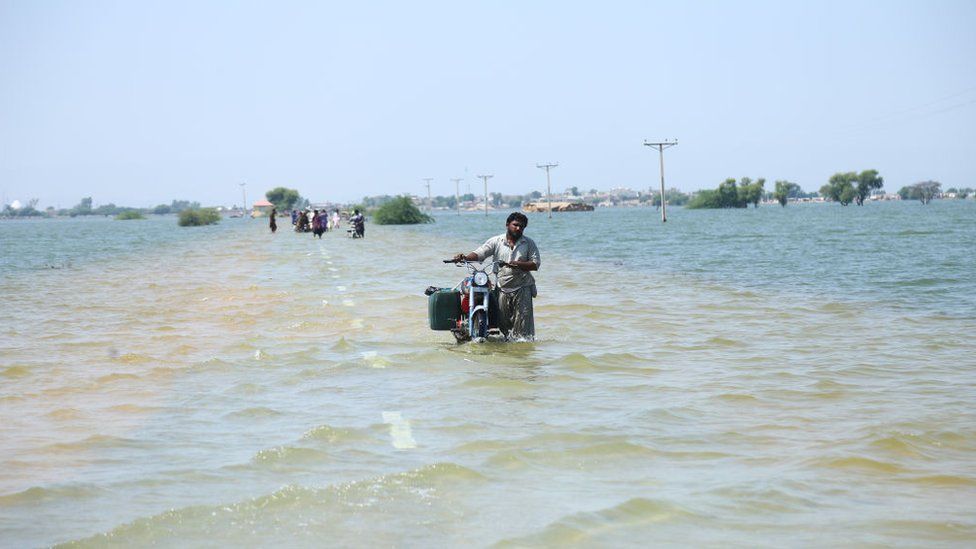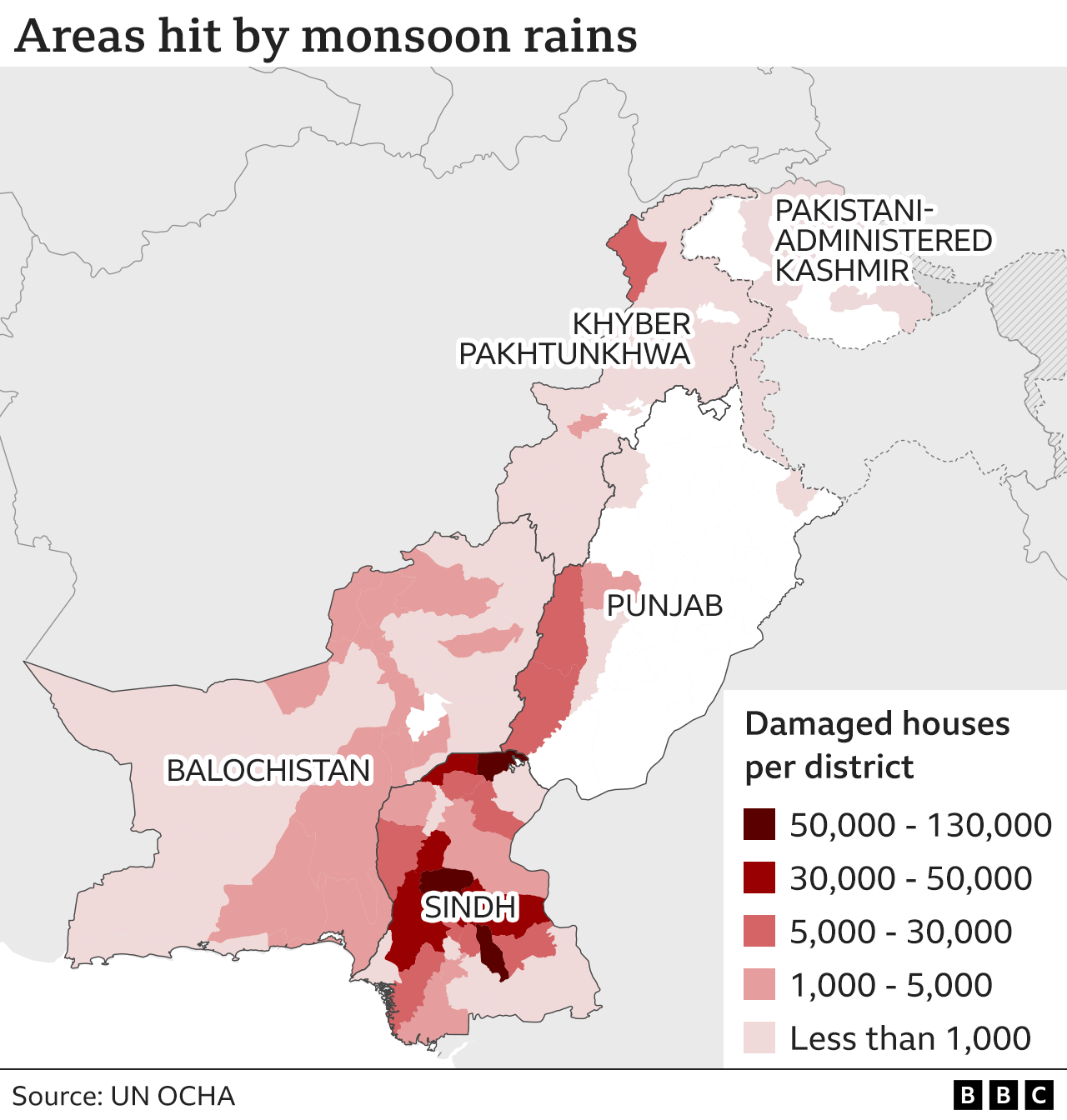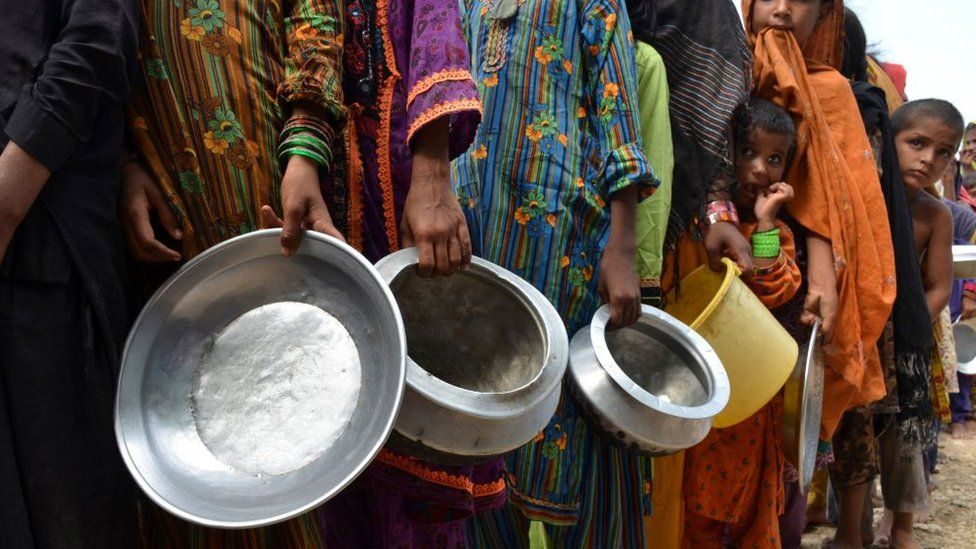 Getty Images
Getty ImagesGlobal warming is likely to have played a role in the devastating floods that hit Pakistan, say scientists.
Researchers from the World Weather Attribution group say climate change may have increased the intensity of rainfall.
However there were many uncertainties in the results, so the team were unable to quantify the scale of the impact.
The scientists believe there’s roughly a 1% chance of such an event happening in any coming year.
In the two months since flooding began in Pakistan, tens of millions of people have been affected, with around 1,500 dying because of the rising waters.
The intensity of the downpours saw the river Indus burst its banks, while landslides and urban flash floods swamped many areas.
Right from the start, politicians pointed to climate change as having made a significant contribution to the desperate scenes.
But this first scientific analysis says the picture is complex.
Certainly, the crippling heatwaves that gripped India and Pakistan earlier this year were easier to attribute, with researchers finding that climate change had made them up to 30 times more likely to happen.
But extreme rainfall events are hard to assess. Pakistan is located on the edge of the monsoon region where the rainfall pattern is extremely variable from year to year.

Further complications include the impact of large-scale weather events such as La Niña, which also played a role in the last major floods in Pakistan in 2010.
During the 60-day period of heaviest rainfall this summer scientists recorded an increase of about 50% over the Indus river basin, while the heaviest five-day period over the provinces of Sindh and Balochistan recorded a rise in rainfall of around 75%.
The researchers then used climate models to determine how likely these events would be in a world without warming.
Some of the models indicated that the increases in rainfall intensity could all be down to human-caused climate change – however there were considerable uncertainties in the results.

“Our evidence suggests that climate change played an important role in the event, although our analysis doesn’t allow us to quantify how big the role was,” said Friederike Otto from Imperial College London, one of the report’s authors.
“What we saw in Pakistan is exactly what climate projections have been predicting for years. It’s also in line with historical records showing that heavy rainfall has dramatically increased in the region since humans started emitting large amounts of greenhouse gases into the atmosphere. And our own analysis also shows clearly that further warming will make these heavy rainfall episodes even more intense.”
“So while it is hard to put a precise figure to the contribution of climate change, the fingerprints of global warming are evident.”
The researchers say that the heavy rainfall that Pakistan endured this year now has around a 1% chance of recurring in any given year, although this estimate does come with a large range of uncertainty as well.
Follow Matt on Twitter @mattmcgrathbbc.








